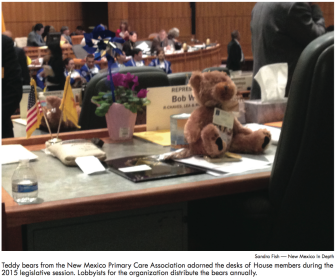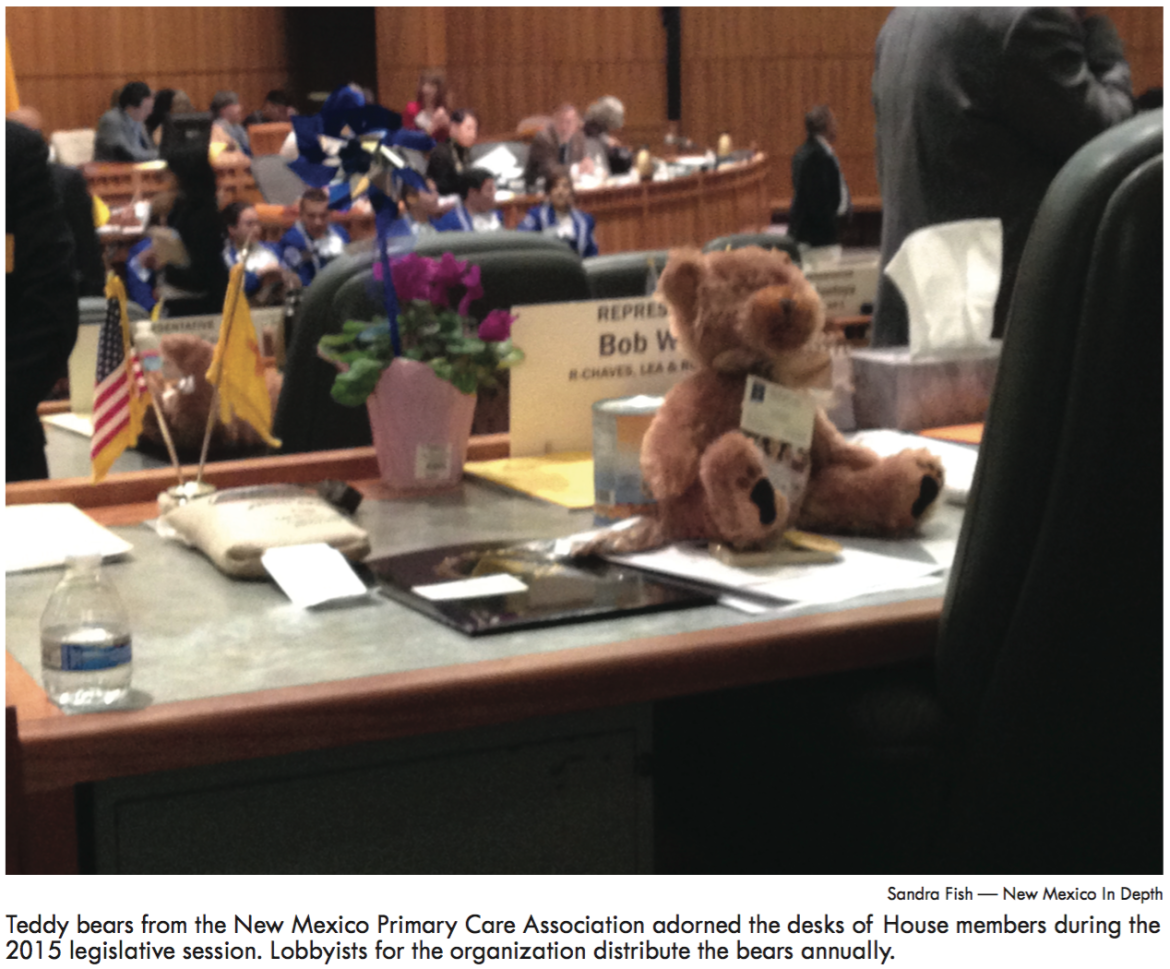 The indictment in August against then-Secretary of State Dianna Duran gave New Mexicans the ultimate example of why campaign finance rules, and vigorous enforcement of them, matter.
The indictment in August against then-Secretary of State Dianna Duran gave New Mexicans the ultimate example of why campaign finance rules, and vigorous enforcement of them, matter.
In late October Duran pleaded guilty to six of 65 counts, including two felony embezzlement charges, and last month a state judge sentenced her to 30 days in jail.
It’s unclear if stronger campaign finance rules would have caught Duran earlier. They potentially might have if, under her direction, the Secretary of State’s office audited more campaign finance reports as required by law. But the audits are limited, and cross-checking donations is difficult.
Or perhaps a whistleblower could have reported to an independent ethics commission, if New Mexico state lawmakers had not repeatedly killed the idea year after year.
What is clear following Duran’s downfall is that New Mexico’s laws and regulations are lax and don’t do much to shine a light on how business is done in Santa Fe.
During 2015, New Mexico In Depth tried to follow the money flowing among lobbyists, special interests and lawmakers. We discovered:
- Lobbyists spent more than $1.6 million on wining, dining and gifting for state lawmakers from 2011 through 2014. Businesses and organizations spent another $379,000 during that time frame.
- Payday lenders gave nearly $140,000 in campaign contributions in the 2013-14 election cycle. Their lobbyists also spent heavily to entertain lawmakers. And a bill to regulate the industry failed.
- Labor unions spent nearly $2.8 million in the 2013-14 cycle. Virtually all the money went to Democratic campaigns, which may have been a motivating factor behind unsuccessful anti-union legislation pushed by Republicans in 2015. But oil and gas and other business interests fueled $1.8 million to GOP political action committees.
- Lobbyists and other organizations spent more than half a million dollars on food, drinks and gifts for lawmakers during the 60-day legislative session in 2015.
- Lobbyists steered $1.8 million to campaigns and political action committees from 2013 to 2015, helping Republicans win the state House for the first time in 60 years.
- Public agencies paid lobbyists $7.2 million in 2014 and 2015 to lobby state and federal government.
What we didn’t find: The real story and underlying connections beyond all those numbers.
Unlike Colorado and other states, New Mexico doesn’t require lobbyists or their employers to disclose compensation or make public detailed spending on individual public officials. Lobbyists don’t have to report what pieces of legislation, let alone issues, they push for during a regular session, either.
In other words, lack of disclosure rules in New Mexico makes it difficult to understand relationships between people, such as lawmakers, lobbyists and their employers; and relationships between timing and people’s legislative actions.
In December, the Secretary of State’s office published new lobbyist and campaign disclosure rules as a response to two legislative leaders citing ‘serious shortcomings’ in the lobbyist reporting system.
Some lawmakers want more sunlight than that, even though the majority of their colleagues don’t. A bill requiring lobbyists and their employers to disclose what lobbyists were paid and what bills they were working on was gutted during the 2015 legislative session before state lawmakers passed it.
Some lawmakers hope to try again for reform this session.
Those measures won’t be considered unless Republican Gov. Susana Martinez adds campaign finance, lobbying and ethics reform to the 30-day session’s agenda. The shorter, election-year session is typically limited to fiscal policy unless a governor adds issues for lawmakers to consider.
“We won’t know until the first day of the session, probably,” said Viki Harrison, executive director of Common Cause.
Common Cause and some lawmakers hope to see a few measures considered that apply to lobbyists. They include:
Addressing the lobbying “revolving door” for lawmakers. Banning lawmakers from lobbying for a certain number of years has been proposed – and gone nowhere – in the past.
Greater disclosure for lobbyists. Requiring lobbyists and their employers to disclose what lobbyists are being paid and what issues and bills they’re working on is a measure that failed in the 2015 session. Some lawmakers and Common Cause of New Mexico hope to see the proposal return — and pass the Legislature.
Campaign contribution disclosure. There’s also a call for lobbyists to be more specific about reporting campaign contributions. Often, checks to candidates are written by a lobbyist’s clients. But not all lobbyists report who the checks come from, as New Mexico In Depth reported last fall. KOB-TV also pointed out the discrepancies that result from poor lobbyist disclosure of contributions.
In November lobbyist J.D. Bullington could be seen in the Roundhouse sorting through checks in his briefcase and handing one to Rep. Jimmie C. Hall, R-Albuquerque.
Bullington said the check was from a client and would be disclosed in January. But he doesn’t always list what client wrote the checks.
Limiting donations from lobbyists to candidates. Bullington told New Mexico in Depth last year that he’d like to see lobbyists banned from using their own money to contribute to candidates. Harrison of Common Cause said she doesn’t think lobbyists should be delivering checks from clients, either. She said businesses should give directly to the candidates without a middleman.
Regular audits of reports filed by campaigns and lobbyists. The Secretary of State’s office now audits a limited number of campaign finance reports and apparently does no cross checking of campaign contributions reported by lobbyists with those reported by candidates.
The Daily Times in Farmington reported last year (2015) that the Secretary of State’s office did little to enforce campaign finance law and didn’t force many violators to pay their fines.
Rep. Jeff Steinborn, D-Las Cruces, said he’ll reintroduce some of his lobbying reforms this year, in the hopes that the governor agrees to consider them.
“It’s just so important that we know the full picture.”
